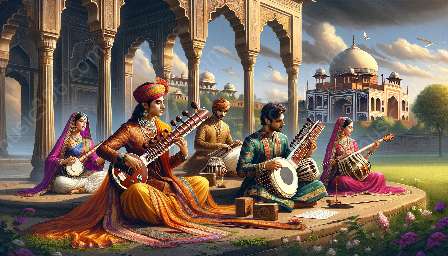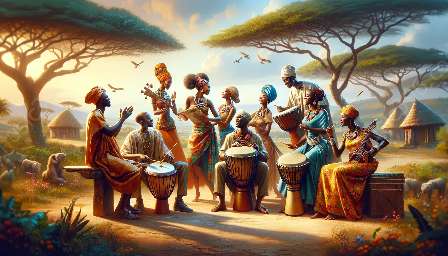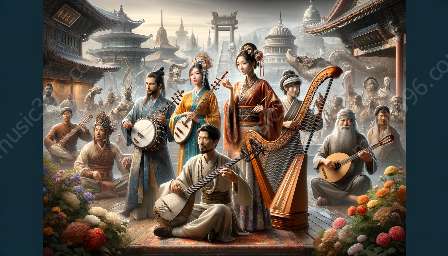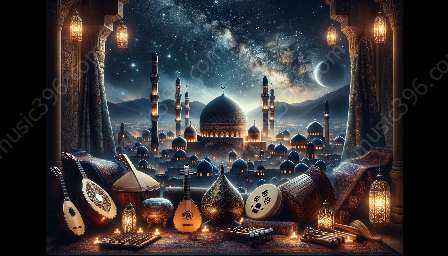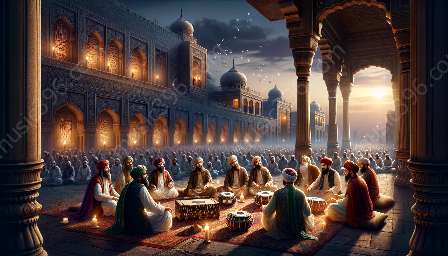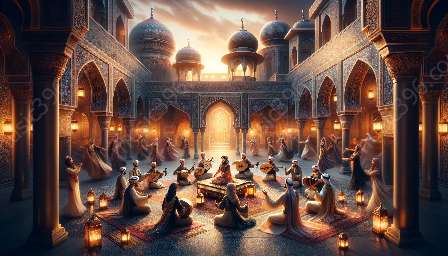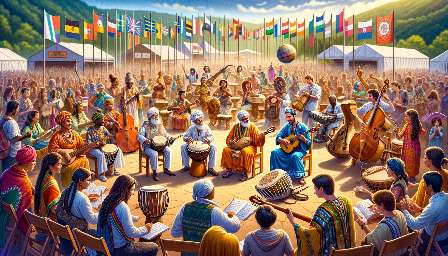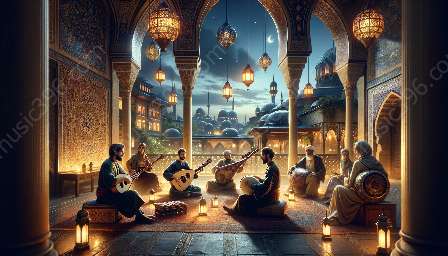Qawwali music holds a unique place in the global music landscape, blending the richness of Sufi spirituality with captivating melodies and powerful rhythms. This traditional form of devotional music has transcended cultural boundaries and continues to mesmerize audiences with its spiritual depth and emotive performances. In this article, we will delve into how Qawwali music and spirituality intersect, exploring its origins, cultural significance, and the profound impact it has had on the world music scene.
The Origins of Qawwali Music
Qawwali music has its roots in the mystical tradition of Sufism, a form of Islamic mysticism that emphasizes the inward search for divine truth and love. The word 'Qawwali' is derived from the Arabic word 'qaul,' which means 'utterance' or 'words spoken with the intention of influencing others.' The essence of Qawwali lies in the spiritual and emotional expression found within its poetic verses, which often convey themes of love, devotion, and the mystical union with the divine.
While Qawwali has its origins in South Asia, particularly in the Indian subcontinent, its spiritual message and universal appeal have allowed it to transcend geographical boundaries, captivating audiences worldwide. The genre has evolved over centuries, drawing influences from various musical traditions and cultural practices, yet it has retained its spiritual core and continues to serve as a profound means of spiritual expression and connectivity.
The Spiritual Significance of Qawwali
Central to the intersection of Qawwali music and spirituality is the concept of 'sama,' which refers to the spiritual concert or gathering where Qawwali is performed. Sufis believe that 'sama' has the potential to elevate the soul and awaken a spiritual awareness through the transformative power of music and poetry. The participatory nature of 'sama' encourages listeners to engage in a collective spiritual experience, where the boundaries between performer and audience dissolve, creating an atmosphere of spiritual unity and devotion.
Qawwali's spiritual significance is also rooted in the tradition of 'dhikr,' the remembrance of the divine, through chanting and repetition of sacred phrases. The lyrics of Qawwali often contain 'dhikr' elements, making it a deeply meditative and spiritually uplifting experience for both the performers and the listeners. Through rhythmic patterns and melodic improvisations, Qawwali music creates a transcendent space for spiritual contemplation and inner reflection, fostering a sense of connection with the divine.
The Impact of Qawwali on World Music
Qawwali's unique blend of spirituality and musical expression has left an indelible mark on the global music landscape, influencing and inspiring diverse genres and artists worldwide. The mesmerizing vocal performances, accompanied by traditional instruments such as the tabla, harmonium, and dholak, create a sonic tapestry that enchants audiences with its emotional depth and fervent spiritual energy.
The enduring appeal of Qawwali can be observed in its influence on world music, with renowned artists and musicians incorporating elements of Qawwali into their compositions. From collaborations with Western musicians to fusion projects that blend Qawwali with jazz, rock, and electronic music, the genre continues to evolve while preserving its spiritual essence.
Moreover, the profound spiritual messages embedded within Qawwali's lyrical poetry resonate with audiences across cultural and religious divides, fostering understanding, empathy, and shared spiritual experiences. As a result, Qawwali has become a global ambassador for Sufi spirituality, promoting harmony and interconnectedness through its universal message of love and devotion.
Conclusion
Qawwali music's intersection with spirituality transcends its musical and cultural roots, offering profound insights into the universal quest for spiritual connection and divine love. Its rich history, spiritual significance, and global impact underscore the enduring power of Qawwali as a transformative and unifying force in the world of music. As this traditional art form continues to captivate audiences with its spiritual depth and emotive performances, its influence on world music and its potential to foster spiritual connectivity remain as relevant and compelling as ever.



